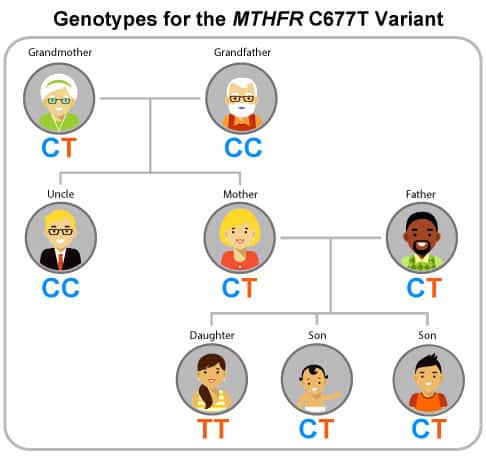Recognizing Early Signs: A Guide To Bipolar Disorder Symptoms
Published on February 14, 2024 – Last Updated on February 14, 2024
Bipolar disorder manifests as pronounced mood fluctuations, ranging from mania or hypomania peaks to the troughs of depression. Early detection of this intricate mental health issue’s indicators is required for prompt and effective treatment strategies. Such proactive recognition mitigates its impacts, enhancing overall management and the well-being of those affected.
This guide aims to elucidate the symptoms of bipolar disorder, facilitating early detection and encouraging individuals to seek professional help.
Understanding Bipolar Disorder
Bipolar disorder isn’t a rare condition, affecting millions of individuals worldwide. Its symptoms can cause unpredictable changes in mood and behavior, leading to significant distress and impairment in daily functioning. Early recognition of the signs is essential for effective management and can significantly enhance the quality of life for those affected.
Hence, for individuals in California or similar locations, seeking mental health treatment in San Diego can provide access to comprehensive care tailored to the unique needs of those living with bipolar disorder.
Common Symptoms Of Bipolar Disorder
Bipolar disorder is marked by profound shifts in mood, energy, and activity levels, manifesting in various symptomatic episodes. Understanding the following symptoms is pivotal for recognizing the condition and seeking appropriate care:
- Manic Episodes
These intense periods are characterized by sustained elevation of mood or irritability lasting at least one week. Individuals experiencing manic episodes often display an exaggerated sense of self-confidence or grandiosity, paired with a reduced need for sleep. Their speech may become more rapid or pressured, indicative of racing thoughts. This state is also marked by heightened distractibility and an upsurge in goal-oriented activities. This includes taking on new projects or engaging in behaviors that carry significant personal or financial risks.
- Hypomanic Episodes
Hypomania mirrors the symptoms of mania but with a milder intensity, lacking the disruptive impact on daily functioning seen in manic episodes. These episodes span at least four days and are characterized by a noticeable shift in behavior to those familiar with the individual. Despite being less severe, hypomanic episodes are critical to recognize as they can precede or follow more intense manic or depressive periods.
- Depressive Episodes
The depressive phase of bipolar disorder is characterized by pervasive feelings of hopelessness, sadness, and a lack of interest or pleasure in most activities, which starkly contrast the energy and activity seen in manic or hypomanic episodes. Weight fluctuations, sleep disturbances, fatigue, and feelings of worthlessness or excessive guilt are common. In severe cases, these episodes may lead to suicidal ideation or attempts.
Identifying these symptoms is essential for the timely diagnosis and management of bipolar disorder, offering a pathway to treatment and stability for those affected by this challenging condition.

Early Warning Signs To Look For
Recognizing the early warning signs of bipolar disorder is crucial for early intervention and effective management of the condition. The early indicators aren’t always pronounced and may be subtle, making awareness and understanding essential for individuals and their loved ones. Some early signs to watch out for include:
- Mood Swings: Profound and rapid mood swings are a hallmark early sign of bipolar disorder. Individuals may experience intense emotional highs, known as mania or hypomania, followed by profound lows or depressive states. These shifts can be sudden and seem out of character for the individual.
- Changes in Sleep Patterns: Alterations in sleeping habits often precede the onset of bipolar episodes. This could manifest as insomnia, where one is unable to sleep despite feeling tired, or hypersomnia, where one sleeps excessively and struggles to get out of bed.
- Energy Fluctuations: Bipolar disorder can cause significant changes in energy levels. An individual might experience periods of excessive energy, restlessness, and an inability to relax, which aren’t linked to recent physical activity. Conversely, they might also go through phases of extreme fatigue and lack of motivation.
- Behavioral Changes: The onset of a manic episode may be preceded by noticeable changes in behavior. This includes engaging in risky, impulsive activities such as reckless driving, overspending, or making hasty decisions without considering the consequences.
- Cognitive Difficulties: Difficulty focusing, remembering, or making decisions is common among those experiencing the early stages of bipolar disorder. These cognitive challenges can occur during both manic and depressive episodes, affecting an individual’s ability to function effectively in daily tasks.
Identifying these early warning signs is a critical step in seeking timely support and treatment, which can significantly improve the course of bipolar disorder. Awareness and early detection can lead to interventions that help manage symptoms and maintain a balanced, fulfilling life.
Risk Factors Associated With Bipolar Disorder
Understanding the risk factors associated with bipolar disorder is crucial for recognizing potential vulnerabilities in oneself or in loved ones. A significant risk factor is a family history of bipolar disorder or other psychiatric conditions, suggesting a genetic component to the disorder. Environmental factors also play a role; high levels of stress, traumatic experiences, and substance abuse can precipitate the onset of bipolar symptoms or exacerbate existing conditions.
It’s important to note that while these factors may increase the likelihood of developing bipolar disorder, they do not ensure its occurrence. Awareness and monitoring of these risk factors can lead to earlier detection and intervention, potentially mitigating the severity of the disorder.
Diagnosis And Treatment
The process of diagnosing bipolar disorder requires a comprehensive evaluation by a mental health professional. This typically includes a detailed psychiatric assessment to understand the individual’s mental health history, symptom patterns, and the impact on their daily life. In some cases, medical tests may be conducted to exclude other conditions with similar symptoms.
Once a diagnosis is confirmed, treatment often involves a combination of medication and psychotherapy. Medications may include mood stabilizers, antipsychotics, and antidepressants tailored to the individual’s specific needs. Psychotherapy, such as cognitive-behavioral therapy, provides tools for managing symptoms and coping with the challenges of the disorder. Lifestyle adjustments, including regular exercise, a healthy diet, and stable sleep patterns, are also recommended.
Importance Of Support Systems
The role of a strong support system can’t be overstated for individuals navigating the complexities of bipolar disorder. Family and friends are often the first to notice changes in behavior or mood that may indicate the onset of an episode. Their encouragement and support can be pivotal in motivating the individual to seek professional help.
Beyond personal networks, support groups and counseling offer additional resources, providing a sense of community and belonging. These groups allow individuals to share experiences, strategies for managing the disorder, and emotional support. Professional counseling can also offer personalized guidance and coping strategies. The collective support from personal networks, community groups, and mental health professionals creates a comprehensive support system that’s instrumental in managing bipolar disorder effectively.
Conclusion
Recognizing the early signs of bipolar disorder is a critical step toward managing this complex condition. By understanding the symptoms and risk factors, individuals can seek timely help and support. If you or someone you know is exhibiting signs of bipolar disorder, it’s essential to reach out to a mental health professional for an evaluation and appropriate treatment.







